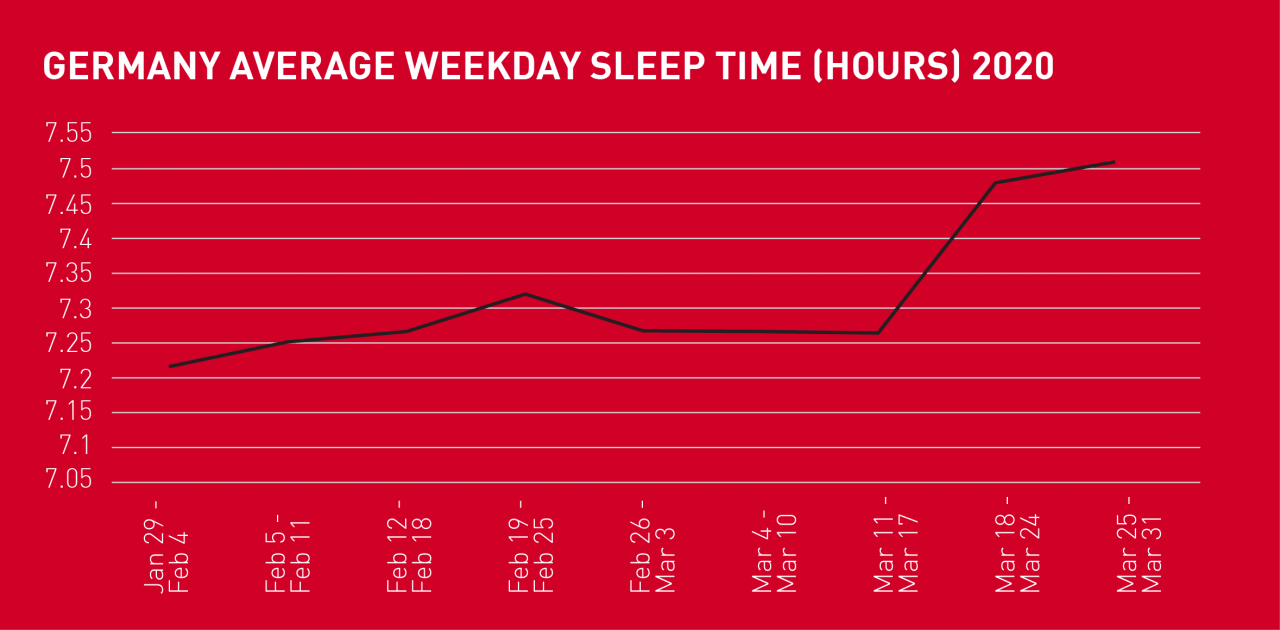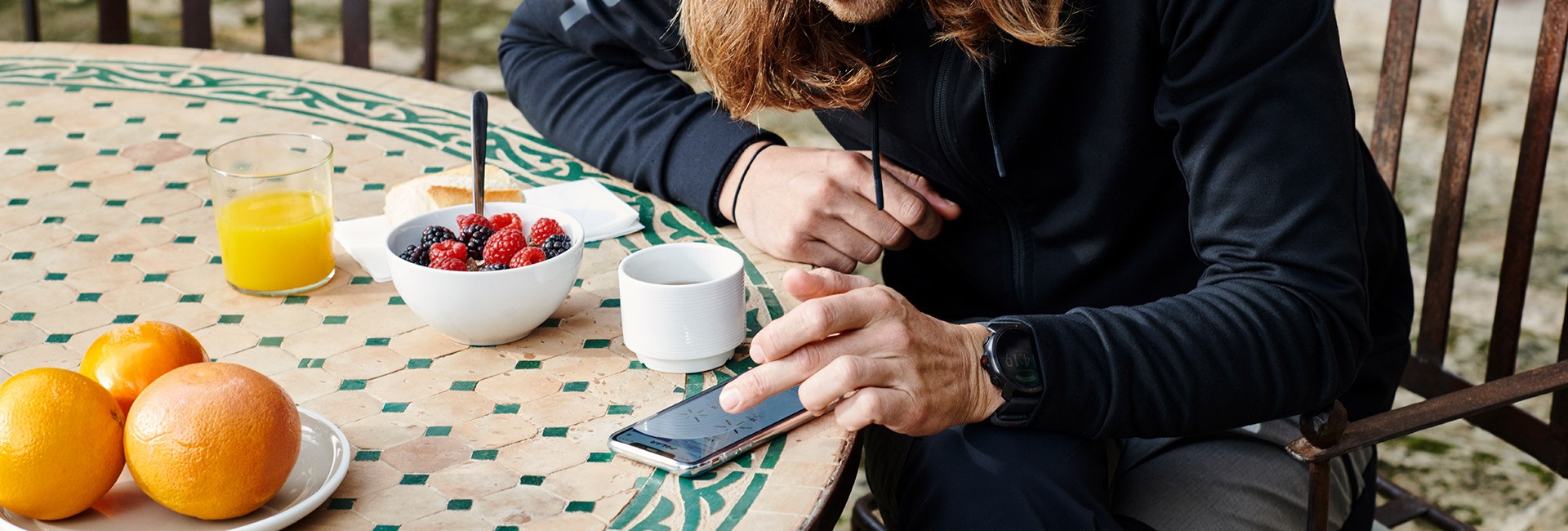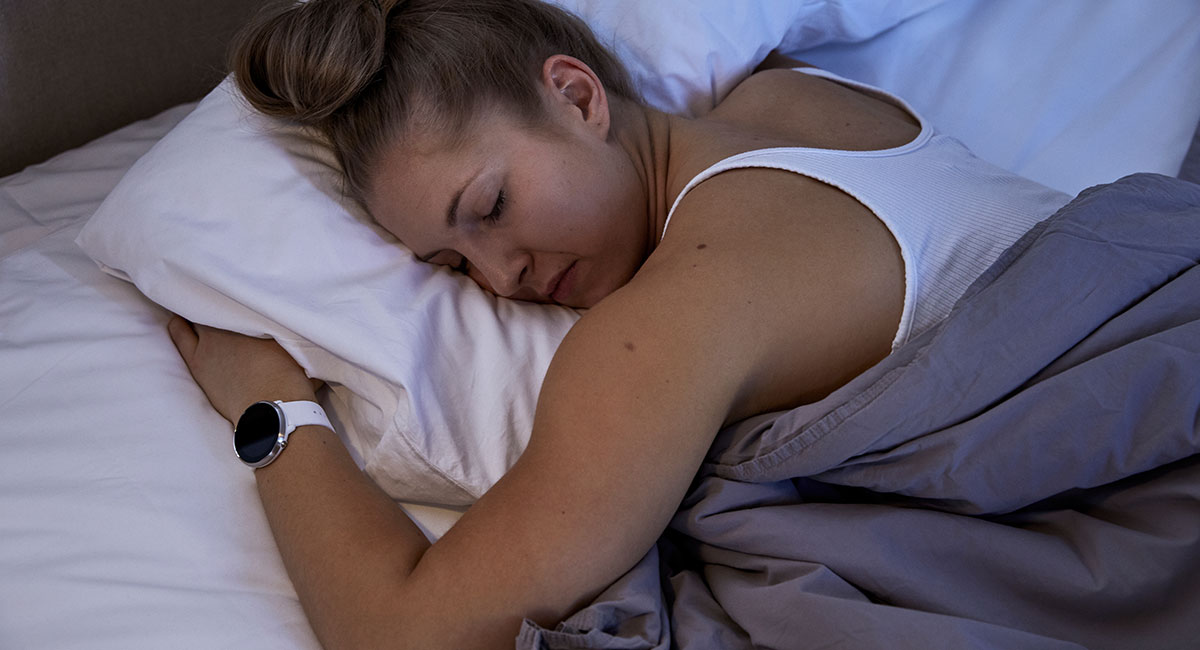As the coronavirus (COVID-19) has impacted almost all corners of the world, many of us find ourselves adapting to a whole new lockdown lifestyle. While being isolated in our homes feels like the worst nightmare for some, this more chilled pace of life may prove to be exactly the opposite, leading to longer and sweeter dreams from our transformed lockdown sleep habits.
According to anonymized Polar sleep data, since social distancing started, people have been, in fact, getting more sleep than before. If this trend continues, the pandemic may end up having positive effects on our health and well-being – in the form of better sleep.
As the world around us seems to be out of control, sleep is something that we can affect and adapt – sleep is a necessity, but also a useful tool, especially for athletes.
So, after the overwhelming amount of sad images and bad news, let’s take a moment to dig into the positive aspects of the COVID-19 epidemic and take a look at how the stay-at-home orders have affected lockdown sleep habits when comparing data from January through March of 2020.
Sleep Times Increasing
According to anonymized data, with the workforce largely working from home, sleep time on weekdays in Germany and the U.S. has increased by 14 minutes on average in the last two weeks of March compared to January and February.
During the same timeframe, people in the U.S. shifted their bedtime to 20 minutes later on the weekdays, and are waking up 34 minutes later than they usually do.
In Germany, however, there was no shift in bedtime, but the longer sleep time was entirely due to later wake-up time.

People More Relaxed Than Before?
Along with longer sleep times, people’s heart rate during sleep slightly decreased at the end of March, compared to January and February of 2020. Simultaneously, their heart rate variability increased, which also resulted in decreased breathing frequency during sleep.
Although the data only offers insight into the start of the epidemic, it shows that during the onset of the COVID-19 and stay-at-home orders, people’s stress levels decreased and the increase in sleep allowed more time for their bodies to recover.
Why more sleep is better?
So, sleeping more seems to be the new normal of the lockdown lifestyle (at least in Germany and the United States), but why is that a good thing?
First of all, it’s a generally known fact that more and better sleep leads to more energy, a better mood and a healthier body. Also, the processes that occur in the body during deep sleep strongly affect how our body adapts to training.
Secondly, experts say so. We’ve turned to several sleep experts to get to the bottom of:
Lastly, science says so.
Research into improving human performance has been ongoing for centuries in one form or another, but in recent years, finding ways to maximize sleep quality – not just the time spent in bed – has been an emerging field of interest, and increasingly, the focus of performance science.
For years, starting long before sleep became such a buzz topic, Polar has contributed to research with more than 8,100 citations in scientific research studies, and Polar’s biosensor technology is widely referenced and validated in academia and other professional fields globally.
For more information on the latest whitepapers and research collaborations, visit the Polar Research Center.
If you liked this post, don’t forget to share so that others can find it, too.
Please note that the information provided in the Polar Blog articles cannot replace individual advice from health professionals. Please consult your physician before starting a new fitness program.





